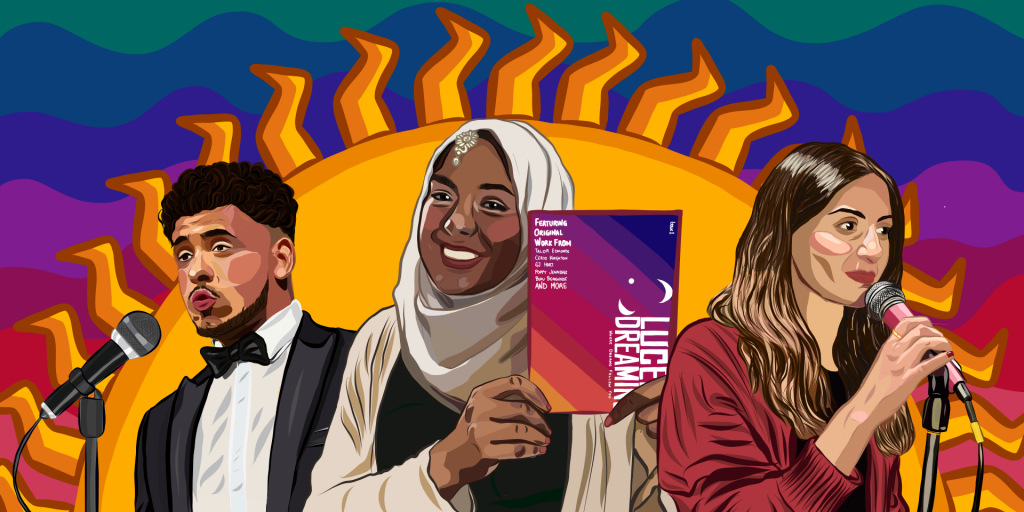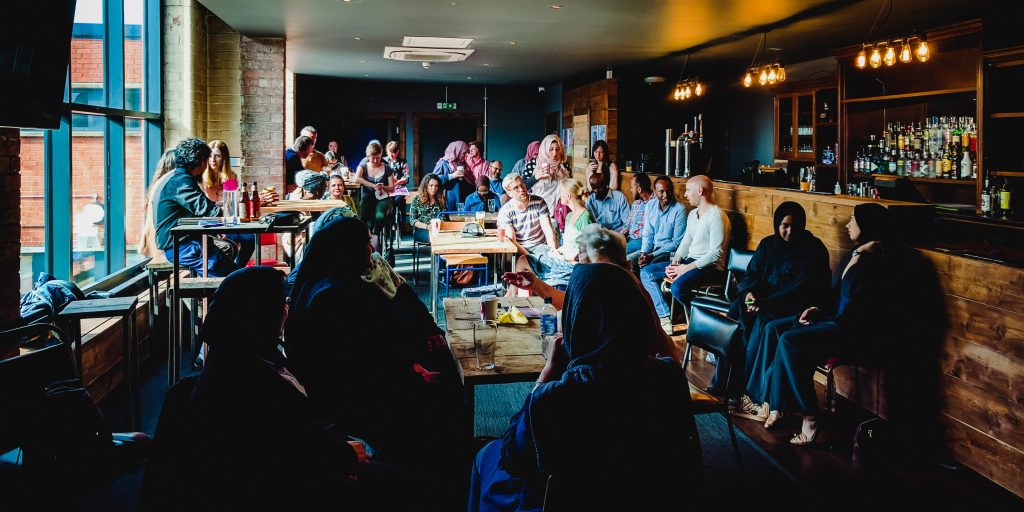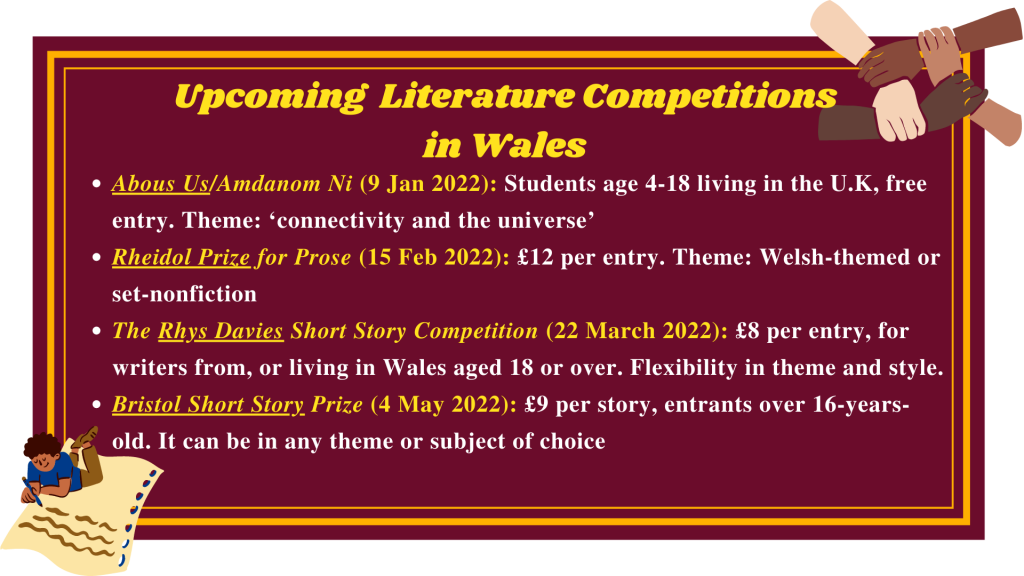Young people are taking action to increase literary opportunities and make structural change by platforming diverse voices in the literature scene in Wales

A young man stands at the centre of the stage, all lights on him and begins rapping his poetry, Liquorice, “When walking the streets with the black kids, He’s labelled as a gang member.… When he’s with the white kids he’s token, Old people call him coloured…”
Rap-poet, Duke Al Durham, 27, recently won a poetry contest and published his poem, Liquorice, with visual arts non-profit Artes Mundi.
Welsh literary organisations are collaborating to create opportunities for under-represented writers. Organisations including Artes Mundi, literary charity Literature Wales, independent publisher Lumin Press and open-mic collective Where I’m Coming From. They are working together to provide diverse artists opportunities through competitions, funded projects, submission call-outs for magazines and journals, as well as work opportunities. However, official statistics couldn’t be found suggesting a boost in equity in Welsh arts and culture industry.
Duke said, “I create to relate and educate those who are struggling with mental health so they don’t feel alone but find comfort in the words that I use.”
The young poet also said that he might be new to the literature scene in Wales, but he feels the voices of people from different ethnic backgrounds are now starting to be heard. Duke said, “Since the Black Lives Matter movement especially, organisations are more aware of how opportunities are affected because of ethnicities, social stigmatisation and stereotypes.”
Penning the race
Duke reflects on his past and says that he turned to the pen when he experienced racism as a rugby player in school, and still continues to experience racism. “Racism seems like an acceptable tool to those who feel intimidated and use it to combat their feelings. It’s still massively prevalent in the UK. It’s important for more artists and creatives to come together and share their experiences to eradicate racism,” he said.
Durre Shahwar is co-founder of an open-mic collective for underrepresented writers in Wales, Where I’m Coming From (WICF), and believes Cardiff is now doing a better job of representing diverse voices. This is in comparison to when she first started WICF, where there were fewer events that catered specifically to writers and performers of colour. “I’d like to think that we were the first people to drive this change that’s happening now,” said Durre.
The 29-year-old writer started WICF in the summer of 2017, while pursuing her Masters. The collective collaborates with other institutions to bridge the gap between emerging writers and established literary organisations for more opportunities. WICF helped nearly 50 artists gain opportunities with publishers and literary journals.
Durre said, “I was attending lots of open-mics, literary events and festivals, but wasn’t really seeing the representation I wanted to see in Wales, unlike in London. I believe we have bridged that gap by working with National Museum of Cardiff, Artes Mundi, and Literature Wales.”
It’s important to give diverse people the tools that have been available to middle-class white people
Jannat Ahmed
Learn more about the young generation’s opinion on diversity in arts and culture in Wales
Diversity is tokenistic
Jannat Ahmed is a young editor-in-chief and founder of the independent magazine for emerging authors and artists, Lucent Dreaming, based in Barry, says that diversity in companies is very tokenistic.
The 26-year-old said, “It’s important to give under-represented people the tools and resources that have been available to middle-class white people like work experience.”
The literary magazine aims to provide marginalised writers and artists the opportunities to work behind the scenes from writing to production. “From next year, we want writers from underrepresented backgrounds to participate in helping us judge writing in our competitions,” said the young editor-in-chief.
The co-founder of WICF also talks about tokenism in representation and her desire to see more organisations run by under-represented groups from the ground up. She says,“It’s frustrating to me when we try to fit in people in predetermined criteria of how stories are told.”
The industry relies more on freelance writers of colour to boost diversity
Durre Shahwar
Durre emphasises that the approach to change should not be looked at in terms of visual representation of diversity. She says, “It’s a tick-box exercise for organisations to hire artists for visual representation only. It’s still a hierarchy almost and as a result, the industry relies more on freelance writers of colour to boost diversity. We need permanent roles for under-represented writers.”

Making foundational change
Through her organisation, Durre’s main goal is collaborating with other organisations to bridge the gap between emerging writers and established literary organisations for more opportunities very much grassroots. WICF has been collaborating with the National Museum of Cardiff, Artes Mundi, and Literature Wales to empower marginalised artists.
Durre continues to say society needs people to make permanent long term roles in organisations for diverse voices. She believes many organisations have now started to do that but there is still a long way to go.
Lucent Dreaming’s founder is planning to expand the magazine to a book publishing company to make a change in the Welsh literature scene. Jannat said, “Starting a fully funded book publisher will make me potentially the first full-time paid publisher of colour in Wales. I have to make the change myself.”

